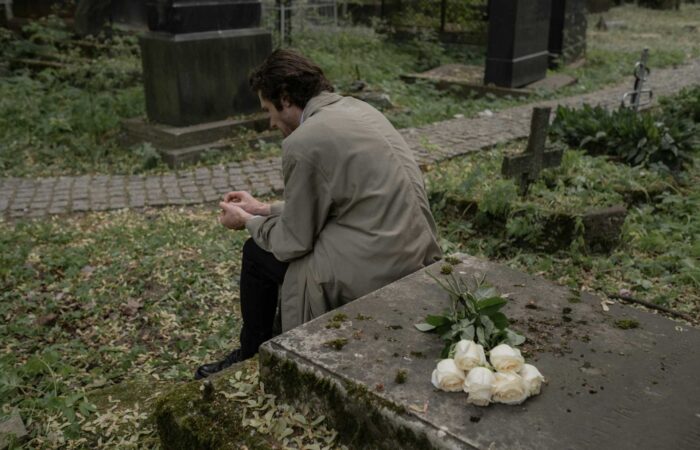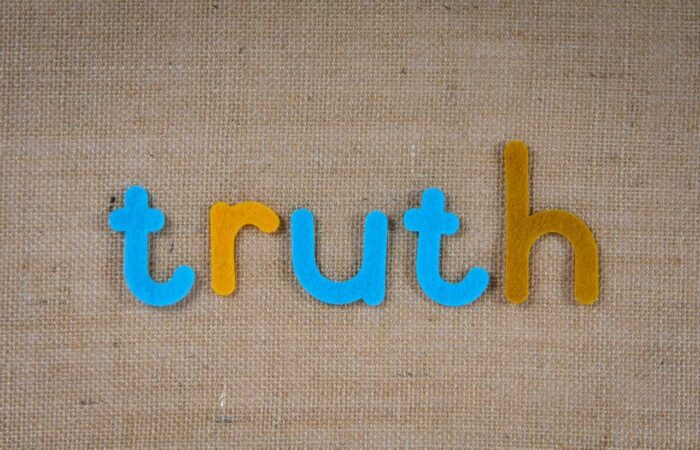Family members sometimes suspect a will was forged after a loved one dies. Perhaps the signature looks different from other documents the deceased signed. Maybe the person named as executor had the most to gain from the will’s provisions. The circumstances surrounding the will’s execution seem suspicious. These concerns lead family members to believe the will isn’t genuine and shouldn’t be admitted to probate.
Texas law allows interested parties to contest wills they believe are forged. Someone challenging a will’s authenticity can present evidence that signatures were forged or that the document doesn’t represent the deceased person’s actual wishes. However, Texas also recognizes self-proved wills—wills with notarized affidavits signed by the testator and witnesses confirming proper execution. These self-proved wills receive special evidentiary treatment that makes them harder to challenge.
When someone contests a self-proved will by claiming forgery, what evidence must they present to succeed? Can family members testify about their familiarity with the deceased’s signature and offer opinions about whether the signature is authentic? Do they need a handwriting expert to prove forgery? What happens when someone waits until after losing at trial to hire an expert and then seeks a new trial based on that expert’s opinion? A recent Texas appellate decision, Guerrero v. Salinas, No. 01-21-00563-CV, 2023 WL 820828 (Tex. App.—Houston [1st Dist.] Mar. 14, 2023, no pet.) (mem. op.), provides an opportunity to examine the requirements for proving will forgery in Texas courts.
Facts & Procedural History
Oralia executed her Last Will and Testament on September 28, 2002. The will was two pages long. A signature line for Oralia appeared at the bottom of the first page, and the will reflected that Oralia signed there. The will’s provisions, including those devising Oralia’s property, filled the first page. After those provisions, Oralia signed the will near the top of the second page above an attestation clause signed by two witnesses. A self-proving affidavit was attached showing that Oralia and the two witnesses had signed the will in the presence of a notary public.
The will required Oralia’s house to be sold with proceeds divided equally among her four children: Silvia, Oralia S. Trevino, Daniel, and Silvester. Stock in two corporations would be divided between Trevino and Silvia. Any other property would be divided equally between the two daughters, Silvia and Trevino.
Oralia died on November 19, 2014, at age 77. In December 2015, her daughter Silvia filed the will with the Harris County probate court along with an application to admit it to probate. Trevino had died in 2015. Angelina Guerrero was Trevino’s daughter. After Trevino’s death, the Hidalgo County probate court appointed Guerrero as the dependent administrator of Trevino’s estate.
In 2016, Guerrero filed a contest to Silvia’s application to probate Oralia’s will. In June 2019, Silvia filed an amended application asking the court to admit the will to probate and appoint Eduardo Saucedo as permanent administrator with will annexed. Silvia explained that the will had named her as independent executrix, but Guerrero had objected to that appointment. The court had appointed Saucedo as temporary administrator. Silvia noted that the only substantial asset in the estate was Oralia’s home, which the will required to be sold. Saucedo had secured a contract to sell the home but couldn’t close the sale because Guerrero was living in the house.
In September 2019, Guerrero filed objections to Silvia’s amended application and to Saucedo’s appointment. She requested that she be appointed independent executrix of Oralia’s estate.
In October 2020, Guerrero filed a supplement to her objection. She claimed she had “recently discovered” Oralia’s “original and true will.” Guerrero attached this newly discovered will to her supplement. She acknowledged that the provisions of the discovered will were identical to the will Silvia had filed. However, Guerrero pointed out one difference: Oralia’s signature appeared on the signature line at the bottom of the first page of Silvia’s will, but the signature line at the bottom of the discovered will’s first page was blank.
Guerrero alleged that because the discovered will was the “original” and lacked Oralia’s signature on the first page, the will filed by Silvia must be “a forgery.” She claimed the will should not be admitted to probate “on the grounds it [was] not the original and because of fraud as it contain[ed] a forged signature on the first page.” Guerrero specifically alleged that Silvia had forged Oralia’s signature.
The case was set for trial on July 29, 2021, and tried to the bench by Zoom. At trial, Guerrero continued asserting that the discovered will was Oralia’s original will and that Oralia’s signature on the first page of Silvia’s will was forged. The probate court suggested the attorneys come to court in person to view both wills to determine which was the original. The court continued trial until August 4, 2021.
When trial resumed, Guerrero’s attorney acknowledged that the will filed by Silvia in 2015 was Oralia’s original will and that the discovered will was a photocopy. However, Guerrero continued claiming that Oralia’s signature at the bottom of the first page had been forged by Silvia and that this forged signature invalidated the entire will.
Guerrero asked the trial court for a continuance so she could retain a handwriting expert. She claimed she realized she needed an expert only after her attorney inspected the will. The probate court was skeptical of this assertion. The court pointed out that the will had been on file for six years—since 2015. The discovered will had been on file since October 2020 and in Guerrero’s possession even longer. The court questioned why Guerrero hadn’t investigated the signature’s validity before trial to determine whether she needed an expert.
Guerrero’s attorney responded that he wasn’t aware he was permitted to inspect the wills on his own. The probate court denied the continuance request, and trial proceeded.
To prove her forgery claim, Guerrero testified that she was familiar with Oralia’s signature because she had lived with Oralia since she was a young child. Guerrero testified that the signature on the first page of the will was not Oralia’s signature. However, Guerrero testified that the signature on the second page of the will was Oralia’s signature.
Silvia also testified that she was familiar with Oralia’s signature. She confirmed that the signature on the will’s first page was Oralia’s signature and denied forging it. The notary who witnessed the will’s execution testified. Although she didn’t remember whether she saw Oralia sign the bottom of the first page, the notary confirmed that Oralia and the two witnesses signed the will’s second page in her presence and in each other’s presence.
On August 12, 2021, the probate court rendered judgment in Silvia’s favor. The court admitted the will to probate, determined that Guerrero was unsuitable to serve as personal representative, and appointed Saucedo as administrator with will annexed.
On September 10, 2021, Guerrero filed a motion for new trial based on newly obtained evidence from a handwriting expert. Guerrero claimed her expert had examined the will and other documents signed by Oralia and found significant inconsistencies in the signatures. On October 12, 2021, the probate court held a hearing on the motion where Guerrero’s handwriting expert testified. The expert concluded that neither the signature on the first page nor the second page was Oralia’s signature, and that Silvia had actually signed the will. The probate court denied the motion for new trial.
Guerrero appealed, arguing that the evidence was insufficient to support the judgment admitting the will to probate and that the trial court abused its discretion in denying her motion for new trial.
What Is a Self-Proved Will Under Texas Law?
Texas law recognizes self-proved wills as a special category of testamentary documents. A self-proved will includes an attached or annexed self-proving affidavit subscribed and sworn to by the testator and witnesses. The affidavit must meet specific statutory requirements set out in the Texas Estates Code.
The self-proving affidavit serves an important evidentiary purpose. It allows a will to be admitted to probate without requiring the witnesses to testify in court. Instead of locating witnesses years after the testator’s death and having them recall the execution ceremony, the probate court can rely on the notarized affidavit as proof that the will was properly executed.
The evidentiary weight given to self-proved wills affects will contests. A self-proved will constitutes prima facie evidence that the will was properly executed. This means the will is presumed valid once it’s offered into evidence. The proponent of the will doesn’t need to call witnesses or present additional evidence of proper execution. The self-proving affidavit alone satisfies the proponent’s burden to show the will was validly executed.
This prima facie evidence presumption shifts the burden to anyone challenging the will. Once a self-proved will is offered into evidence, the burden falls on the contestant to prove the will is invalid. The contestant must present evidence overcoming the presumption of validity created by the self-proving affidavit.
What Burden Does a Will Contestant Face When Alleging Forgery?
When someone challenges a self-proved will by claiming forgery, they bear the burden of proving the forgery occurred. The proponent of the will—usually the person seeking to have it admitted to probate—satisfies their initial burden simply by offering the self-proved will into evidence. At that point, the burden shifts to the contestant to establish that signatures were forged.
This burden allocation makes sense given the evidentiary weight of self-proving affidavits. The notarized affidavit signed by the testator and witnesses creates a strong presumption that the will was properly executed and that the signatures are genuine. Someone claiming forgery must overcome this presumption with affirmative evidence showing the signatures are not authentic.
The contestant must do more than raise questions or create doubt about signature authenticity. They must affirmatively prove forgery occurred. This requires presenting evidence that would convince the factfinder—whether judge or jury—that the challenged signatures were forged rather than genuine.
Can Lay Testimony Establish Forgery of a Will?
Texas law doesn’t require expert testimony to prove forgery. Lay witnesses familiar with a person’s handwriting can testify about whether a signature appears genuine. Someone who has seen the deceased sign documents many times might be able to offer an opinion about whether a questioned signature looks authentic.
In Guerrero, the appellant relied primarily on her own testimony to prove forgery. Guerrero testified that she had lived with Oralia since she was a young child and was familiar with Oralia’s signature. Based on this familiarity, Guerrero testified that the signature on the first page of the will was not Oralia’s signature. She claimed only the signature on the second page was genuine.
However, Silvia offered contrary testimony. She also testified that she was familiar with Oralia’s signature and confirmed that the signature on the first page was genuine. She denied forging the signature. The probate court thus faced conflicting lay testimony about signature authenticity—Guerrero claiming the signature was forged and Silvia asserting it was genuine.
The trial court acts as the sole judge of witness credibility in bench trials. The court can believe one witness and disbelieve another. The court can give more weight to testimony from one witness than from another based on the witness’s demeanor, consistency, and other factors affecting credibility.
In this case, the probate court apparently believed Silvia’s testimony that the signature was genuine and disbelieved Guerrero’s testimony that it was forged. The court had the authority to make this credibility determination. An appellate court won’t second-guess these credibility findings unless no reasonable factfinder could have made them based on the evidence presented.
Does the Quality of Lay Testimony Matter?
While lay testimony can theoretically establish forgery, the quality and consistency of that testimony matters enormously. In Guerrero, the appellant’s testimony suffered from a significant internal inconsistency that undermined her forgery claim.
Guerrero testified that the signature on the first page of the will was forged but that the signature on the second page was genuine. This created a logical problem for her forgery theory. If someone forged Oralia’s signature on the first page, why would they use a genuine signature on the second page? Why would Silvia—whom Guerrero accused of the forgery—forge one signature but not the other on the same document?
Moreover, the second-page signature appeared in the most important location on the will. Texas law requires the testator to sign the will, and that signature typically appears at the end of the will’s substantive provisions. The signature on the second page was the signature that actually executed the will. The signature on the first page appeared on an additional signature line but wasn’t strictly necessary for the will’s validity.
Guerrero offered no explanation for why the alleged forger would create a false signature in a less important location while leaving the genuine signature in the most important location. This inconsistency weakened the persuasive force of her testimony.
The appellate court also noted that Guerrero provided “no argument or authority to show that Oralia’s signature on the first page of the Will was required to make it a valid will.” Even if the first-page signature had been forged, that wouldn’t necessarily invalidate the entire will if the second-page signature was genuine and the will otherwise met legal requirements.
What Role Do Handwriting Experts Play in Forgery Cases?
Handwriting experts can provide valuable evidence in will contests involving forgery allegations. These experts examine questioned signatures and compare them to known examples of the deceased’s handwriting. Through this analysis, experts can offer opinions about whether signatures were written by the same person.
Handwriting experts use various techniques to evaluate signatures. They look at letter formation, spacing, pressure, pen lifts, and other characteristics. They compare these features across multiple samples to determine consistency. Expert testimony can help factfinders understand technical aspects of handwriting analysis that lay witnesses might not recognize.
However, expert testimony isn’t mandatory in Texas forgery cases. The law doesn’t require contestants to hire handwriting experts to prove forgery. Lay testimony from people familiar with the deceased’s handwriting can suffice if the factfinder finds it credible and persuasive.
In Guerrero, the appellant didn’t present handwriting expert testimony at trial. She relied solely on her own lay testimony about her familiarity with Oralia’s signature. Only after losing at trial did Guerrero hire a handwriting expert and attempt to use that expert’s opinion as the basis for a new trial.
The Takeaway
Proving will forgery in Texas requires more than suspicion or disagreement with a will’s provisions. When challenging a self-proved will, the contestant bears the burden of affirmatively proving signatures were forged. Lay testimony from people familiar with the deceased’s handwriting can theoretically establish forgery, but that testimony must be credible and consistent. Internal contradictions—like claiming one signature is forged while acknowledging another on the same document is genuine—undermine forgery claims. Handwriting experts can provide valuable evidence, but Texas law doesn’t require expert testimony in every forgery case. Parties who choose to proceed without experts at trial take the risk that their lay testimony won’t persuade the factfinder. Waiting until after losing at trial to hire an expert and seek a new trial rarely succeeds. Courts require parties to show they couldn’t have obtained the expert evidence earlier through reasonable diligence. When all the materials an expert needs existed long before trial, courts will find lack of diligence. Procedural requirements matter enormously in preserving forgery defenses for appeal.
Do you need help with a probate matter in Austin or the surrounding area? We are Austin probate attorneys. We help clients navigate the probate process. Call today for a free confidential consultation, 512-273-7444.
Our Austin Probate Attorneys provide a full range of probate services to our clients, including helping with probate disputes. Affordable rates, fixed fees, and payment plans are available. We provide step-by-step instructions, guidance, checklists, and more for completing the probate process. We have years of combined experience we can use to support and guide you with probate and estate matters. Call us today for a FREE attorney consultation.
Disclaimer
The content of this website is for informational purposes only and should not be construed as legal advice. The information presented may not apply to your situation and should not be acted upon without consulting a qualified probate attorney. We encourage you to seek the advice of a competent attorney with any legal questions you may have.




